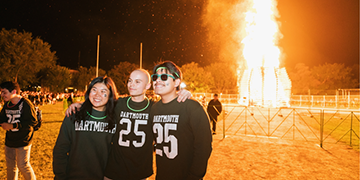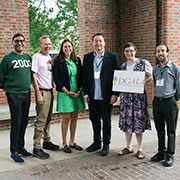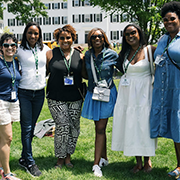Dartmouth’s Second Tribal Leadership Academy Set for July
Insights into government relations and information sharing will highlight the week.
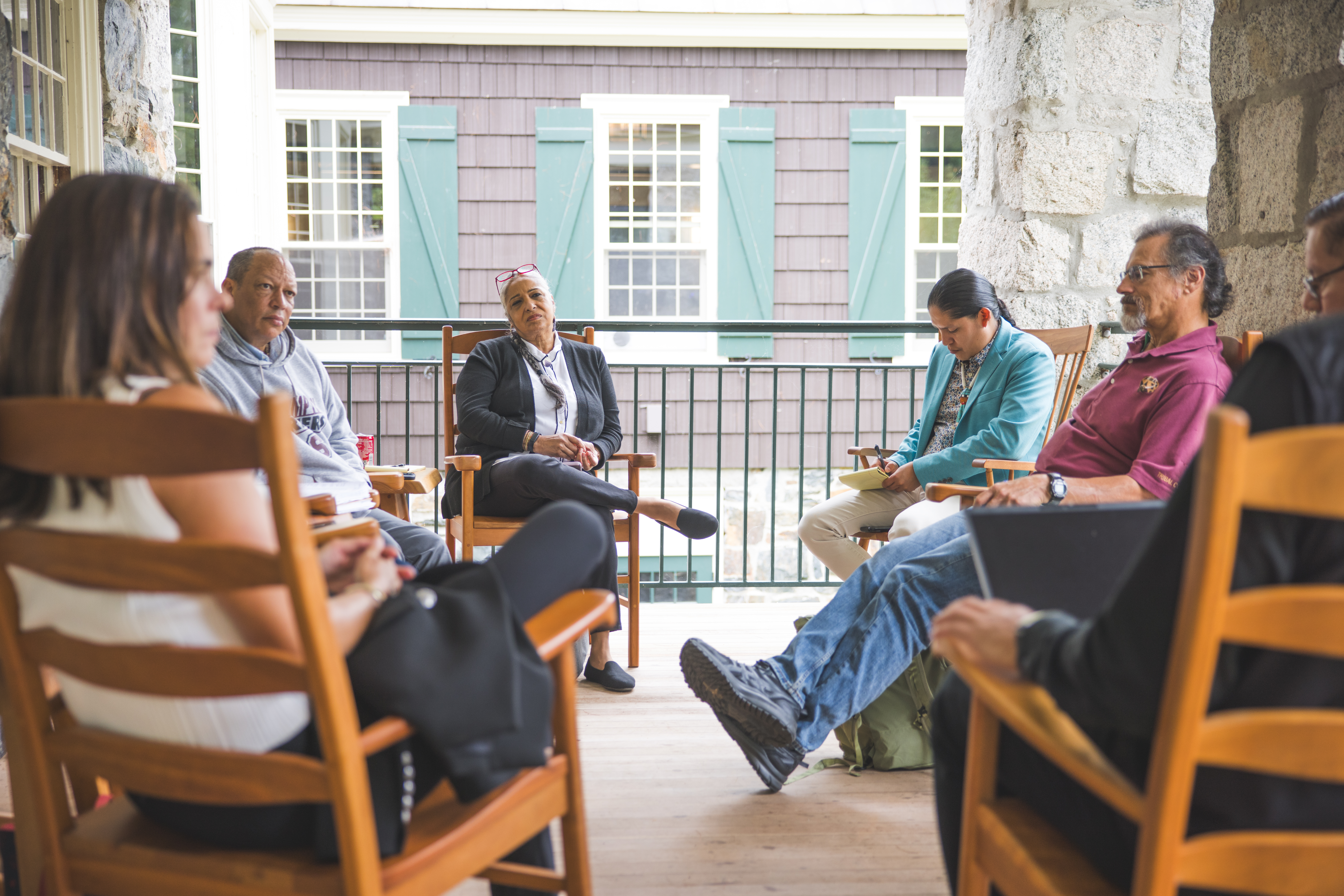
Jun 18, 2025
2 minute read
James Bressor
2 minute read
Dartmouth is preparing to welcome 27 Indigenous leaders from across the United States for the second Tribal Leaders Academy, a learning experience to help tribes address many of the most challenging issues facing their communities.
The academy provides a place for newly elected or appointed tribal governmental leaders to engage with each other and with experienced faculty presenters on governance matters of vital importance. Over the course of five days beginning in late July, participants will immerse themselves in multiple complex issues, including economic development, health care, higher education, and tribal climate adaptation.
“The Tribal Leaders Academy is an opportunity for us to welcome and engage directly with leaders in Indian Country by bringing them to Dartmouth and facilitating their conversations with one another and with faculty presenters, most of whom are our Native alumni,” says N. Bruce Duthu ’80, Samson Occom Professor, chair of the Department of Native American and Indigenous Studies, and the academy’s faculty director. “We launched the academy last year. It went even better than I could have imagined.”
The TLA’s inaugural session in 2024 brought 18 leaders from 16 tribes to the Dartmouth campus to learn practical approaches to problem-solving and to connect with peers about the urgent matters facing Indigenous communities. Collectively, these leaders represented more than 600,000 enrolled tribal citizens.
Three tribal leaders who attended the inaugural academy recently met members of the Dartmouth Native American Visiting Committee and TLA supporters to reflect on their participation. One of them, Dillon Shije, a tribal councilman from the Pueblo of Zia in New Mexico, says the academy provided a deeper, more nuanced understanding of intergovernmental relations and facilitated information-sharing between tribes and generations.
“I come from a community of less than a thousand people, so every single one of us has a key responsibility to uphold those trust responsibilities set by the federal government and to look at ways we can be sustainable and grow for future generations,” says Shije.
This year’s participants come from 24 tribal nations. Dartmouth covers all tuition, travel, and accommodation costs, as well as most meals.
“We have a great group of applicants, and we are impressed with the diversity of tribes represented. Awareness of the academy is growing,” says Duthu. “For example, we have four applicants from Alaska this year, versus none last year. Our Native alumni in Alaska helped get the word out.”
Related Content
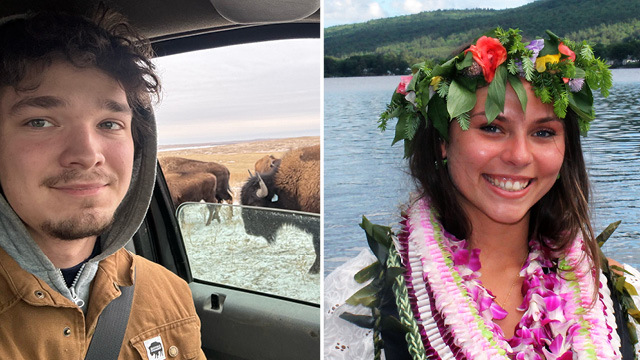
“It’s in Their DNA to Want to Make an Impact”
Two research fellows focused on Native issues share their experience.
5 minute read


